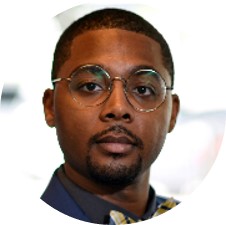Newsletter | Winter 2022 | South Central MIRECC
SC MIRECC Affiliate Profile: Joshua Hamer, PhD

Tell us a bit about your educational and career background.
I completed my undergraduate and graduate education at the University of Mississippi. My choice to pursue clinical psychology was informed by undergraduate neuroscience research during which I longed to work with humans instead of avian subjects. After completion of the predoctoral internship, I opted to pursue structured postdoctoral opportunities to enhance my clinical, research, and health professions leadership skills.
What do you like about doing research with Veterans?
I am still working to understand ways to quantify the impact of research and non-research in which I have participated. Quantifying impact to consider the effects of interventions on Veterans, clinicians, and trainees has been one of the most gratifying exercises that makes my involvement in health services research most enjoyable.
Do you have any ongoing or upcoming studies or projects that you want to highlight?
I recently submitted a QUERI supplement proposal to Advance Diversity in Implementation Leadership with Dr. Kyler Godwin. The proposal harnesses the power of pre-existing, local Houston VA policies (i.e., Dementia Care Pathways) that are aligned with national VHA’s Dementia System of Care. This proposal seeks to bolster screening processes in primary care to improve dementia-related outcomes. Another project that I am particularly excited about is a recently awarded Education, Innovation, and Technology faculty pilot grant with Drs. Ali Abbas Asghar-Ali and Jennifer Bryan. With this grant, we are seeking to establish a robust training regarding cultural humility and how to respond to microaggressions and discriminatory requests made by patients.
How will you use your SC MIRECC affiliation to grow your research career?
I have been making meaningful connections with SC MIRECC investigators to understand exactly how I fit within this well-oiled, research machine. One of the most effective ways I will use my affiliation to advance my career is through the work I am doing with the SC MIRECC Education Core as well as serving as the DEI Committee Chair. In my work with the Education Core, I am developing community partnerships with organizations that may not otherwise know we exist (e.g., Mayor’s office, local Veteran serving organizations, Veteran-serving institutions of higher education) to aid in the dissemination of our Veteran-facing clinical education products. I also work with clinical educators to enhance the accessibility of their products to our Veterans and clinicians.
Regarding my work with the DEI committee, I am working with the committee to establish an array of enduring resources that will facilitate enhanced practices to ensure that the talent within our teams is as diverse and inclusive as our local environmental context while considering processes related to hiring, retention, and training.
Are there any people who have played important roles in your professional development that you would like to mention?
Drs. Kyler Godwin, Ali Abbas Asghar-Ali, Sylvia J. Hysong, and Kara Boyer (Associate Chief of Staff for Mental Health at the Orlando VA) served as my mentoring team during my fellowship and encouraged me to pursue my career goals.
What would your dream research study be if funding weren’t an issue?
Ideally, I would be able to assess for healthcare and mental healthcare disparities in a rural geographic region. After this initial evaluation effort, I would work with interdisciplinary leaders and teams to address these outcome barriers and move the mental health and healthcare system forward through systems improvement. Finally, this endeavor would result in an array of enduring education products that range from peer-reviewed publications to clinician- and patient-facing materials to replicate efforts in other rural areas serving Veterans who may have limited access to quality healthcare services.
How can people get in touch with you if they have questions?
Joshua.Hamer@bcm.edu (preferred) or Joshua.Hamer@va.gov.
Last updated: January 28, 2022
In this Issue
— Affiliate Profile: Dr. Joshua Hamer
— Meet the SCMIRECC-IQuESt-CeMHOR DEI Committee
— DEI Corner
— DEI Calendar of Events
— Anchor Site Highlights
— New Clinical Education Resources
— Publication Highlights
— Pilot Grant Opportunity
— MIDAS Consultation Service
SC MIRECC Menu
Home
About
Leadership & Staff
Anchor Sites
Research
Research Training
Houston Fellowship
Little Rock Fellowship
Fellows
Grant Writing
Education
CBOC Grand Rounds
BEST Program
Education Products
New and Featured
Products by Topic
Order
Clinical Care
Newsletter
News Flash
PACERS
Diversity (DEI)
Black Veterans
Older Veterans
Women Veterans



















